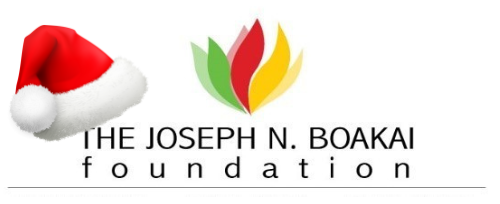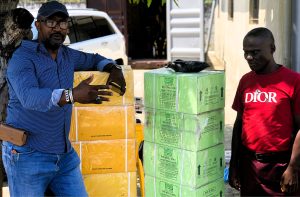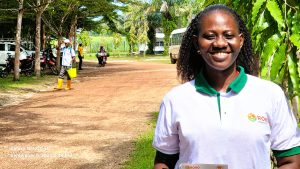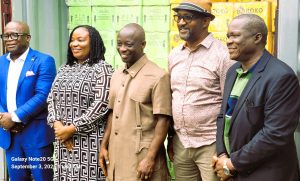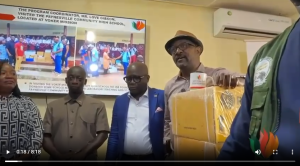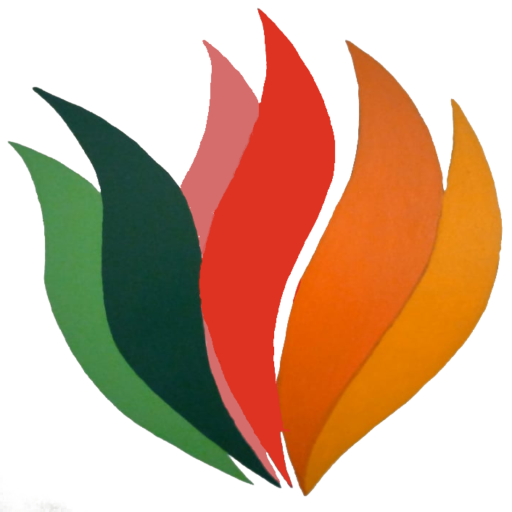Agriculture
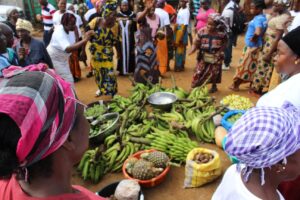
 Agriculture is the backbone of the Liberian economy. Researchers say agricultural transformation can become the driving force for poverty reduction, food security and economic growth. Liberia does not grow enough food to feed itself and spends over $200 million annually to import its staple food, rice. Even pepper and vegetables are imported from Guinea and La Cote d’Ivoire. Despite the fact that the country has nearly 5 million hectares of arable land, according to the Food and Agriculture Organization
Agriculture is the backbone of the Liberian economy. Researchers say agricultural transformation can become the driving force for poverty reduction, food security and economic growth. Liberia does not grow enough food to feed itself and spends over $200 million annually to import its staple food, rice. Even pepper and vegetables are imported from Guinea and La Cote d’Ivoire. Despite the fact that the country has nearly 5 million hectares of arable land, according to the Food and Agriculture Organization
(FAO), more than 200,000 Liberian children suffer from chronic malnutrition while almost 700,000 Liberians are affected by food insecurity. Lack of adequate nutrients in the diet for children is responsible for the prevalence of stunted growth, and also contributing to weakened immune system and even blindness.
The Joseph Nyuma Boakai Foundation works with rural farmers and rural women organizations to improve agricultural production with value chain development and food security. Women in the rural communities are the primary family supporters. They produce over 90% of food crop and more than 70% of cash crop. They are the marketers and traders of agricultural commodities. The Joseph Nyuma Boakai Foundation will mobilize and empower women farming groups and associations of women in cross border trade to:
- Organize storage facilities
- Provide access to farming supplies and goods, food preservation, and investment in microloans and value chain development
- Improve farming methods and increase productivity with high yield seeds and more nutrient rich crops with diversification of higher value agriculture products
- Introduce heat and drought tolerant crops, giving the challenges of climate change and deforestation
- Provide access to markets including transportation
- Promote literacy and numeracy training at the minimum
- Encourage women to become leaders in economic transformation by adopting farming as small businesses and assisting in securing long term buyers for their produce which will give them the confidence to invest more, produce more, and increase their incomes
- Encourage farmers to work with marketing associations and form cooperatives, including crowd funding
- Build women's capacity to manage finances, partnerships and investments
Use the farm in Bomi County of Honorable Joseph N. Boakai which he has made available to the Foundation to serve as training center for small farmers in improved methods of rice, pepper, vegetable and cash crop production as well as in water harvesting and irrigation.
Presently, the Foundation is working with the following groups and associations around the country: Lofa Women for Progress (LWP), covering six (6) Districts in Lofa County; Agriculture and Rural Development Extension Bureau (RDEB) in Clay Ashland, rural Montserrado County; and Grassroot Women Agriculture Multipurpose Cooperative (GWAMC) with projects in the six counties of Bomi, Bong, Gbarpolu, Grand Bassa, and Grand Cape Mount.
These program initiatives involved general agricultural projects that comprised production of rice, vegetables, poultry, and aquaculture (fish ponds for fish fingerlings). Specifically, LWP is involved with high land and swamp land rice productions, with the extended activities of facilitating, assisting, and organizing smallholder farmers with emphasis on production, processing, marketing, storage, and transportation. RDEB runs pilot farms for production of vegetables, livestock, poultry, and aquaculture, with the aim of small agro food industry processing. GWAMC focuses on increased and substantial production of low land and upland rice with the goal of reducing dependence on imported rice.
The Foundation is giving substantial financial supports to these groups or associations for the fruition of the various projects.
The Foundation’s interest in supporting Agriculture-based projects is to encourage increased production of cash crops to benefit and provide economic empowerment to women and youth, especially girls, in rural areas with the goal to improve their income levels and standards of living.
